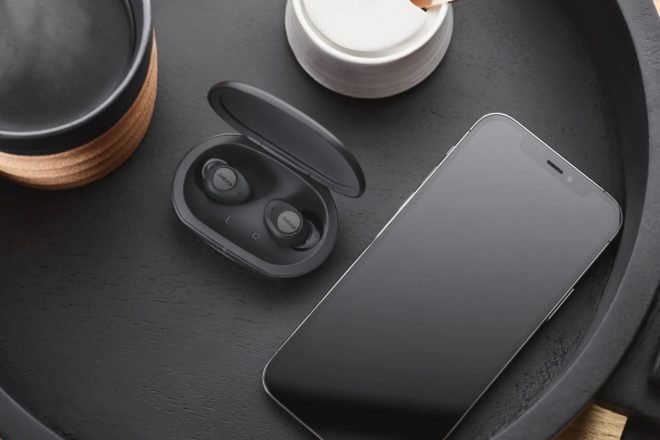If you’re not personally impacted by hearing loss, you might just take your hearing for granted. It may surprise you, then, to learn that nearly 16% of American adults experience some level of hearing trouble—1 out of 5 men, and 1 out of 8 women..
The effects of hearing loss can extend well beyond mere hearing. When you have trouble hearing, it makes ordinary life more difficult. For many sufferers of hearing loss, ongoing difficulty with ordinary tasks—daily conversation, for example—can be exhausting, isolating, and depressing.
Sadly, less than half of adults who are experiencing hearing loss have been to see a care provider to discuss solutions.
When it comes to hearing solutions, there is a lot to unpack. This is largely because hearing aid manufacturers are now producing entire lines of hearing aid models that vary in a number of ways—including the hearing aid style, features and technology, price point, and more.
In this blog, we’ll be answering a few questions about moderate hearing loss, and then we’ll make a few recommendations for some of the best hearing aids for moderate hearing loss.
What Is Moderate Hearing Loss?
When it comes to degrees of hearing loss, “moderate hearing loss” falls roughly in the middle. In all, there are 7 degrees of hearing loss: normal, slight, mild, moderate, moderately severe, severe, and profound. As explained in this hearing loss decibels chart, hearing loss is measured in decibels of hearing loss (abbreviated as dB HL). The decibel ranges assigned to each hearing loss degree indicate the decibel level of the quietest sound(s) you can hear.
What Range Is Moderate Hearing Loss?
Moderate hearing loss applies to people who can hear sounds as quiet as 41-55 decibels. For reference, whispering is about 30 dB, and normal human conversation is around 60 dB. Since conversation is a range, some sounds will be outside of the hearing range while others will be within.
Can Moderate Hearing Loss Get Worse?
Generally, yes, hearing loss is a progressive condition, meaning hearing loss of any level does tend to worsen over time.
Can Moderate Hearing Loss Be Corrected?
The use of a hearing aid does not technically “fix” hearing loss or reverse the physical damage to your ears. That being said, however, there are countless hearing aid solutions available, so you should be able to find the hearing aid style, features, and price that will work best for your needs.
For Moderate Hearing Loss, What Is the Best Hearing Aid on the Market in 2022?
Ideally, you’ll visit with an audiologist, who can help diagnose your hearing loss and talk you through what some of your options are.
Generally, here’s what you can expect from an audiologist consultation:
- A discussion of your hearing loss history and symptoms
- A hearing test and discussion of results
- An overview of hearing loss treatment options
- Recommended follow-up care and determination of next steps
While an audiologist consultation should help you zero in on the best hearing solutions for your personal preferences and needs, to give you an idea of what some of your options are, here are three hearing solutions you should consider:
Top 3 Hearing Aids for Moderate Hearing Loss
Our top 3 hearing aids for moderate hearing loss are the Phonak Audeo Paradise, Widex Moment, and Oticon More models.
- Phonak Audeo Paradise: This receiver-in-canal (RIC) hearing aid consistently receives rave overall reviews for its advanced technology, impressive memory size, Bluetooth capability, motion sensing, and more. This is an excellent all-around hearing aid.
- Widex Moment: Available as either a behind-the-ear or RIC model, in rechargeable or battery-powered versions, this model is especially effective for tinnitus sufferers, as it amplifies natural environmental sounds to reduce how noticeable the ringing is.
- Oticon More: This behind-the-ear solution uses artificial intelligence (AI) to improve the wearer’s ability to understand speech. As a bonus, it also boasts a full-day battery life once charged.
What Questions Do You Have, and How Can We Help?
Let’s talk. At Hearing Health Connection, we believe that hearing solutions provide vital quality of life relief for patients with all levels of hearing loss severity. We know it can be overwhelming to assess your options, including which manufacturers you can trust, the features that will provide the most essential benefits, and more. That’s why we take a patient-centered approach to finding the best hearing aid solution for each individual.
If you’re not ready to talk to an audiologist yet, we can understand that. In that case, we offer a proprietary self-assessment tool you can use to take the first step toward understanding and treating your hearing loss. When you’re ready, head to our website to take an online hearing test.



